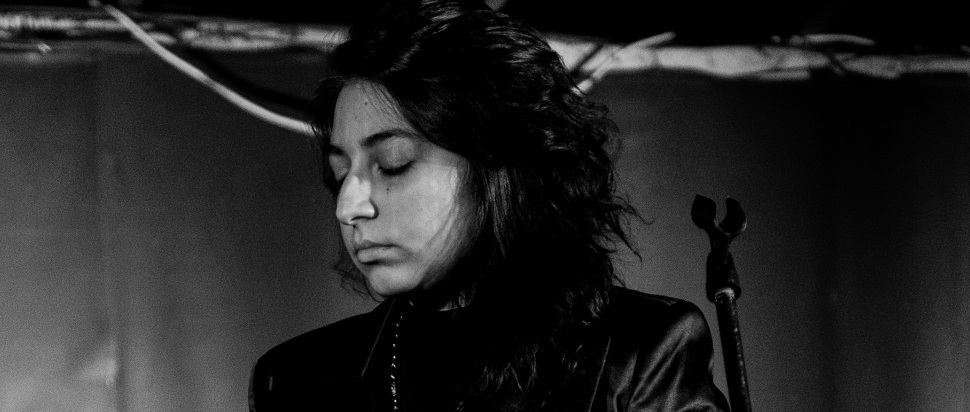Push and Pull: Arooj Aftab interview
Ahead of her show at the Edinburgh International Festival this August, we catch up with Brooklyn-based Pakistani musician Arooj Aftab
Arooj Aftab’s music holds you spellbound. Stillness melds with poetry; dreamy electronic trance encircles jazz arrangements. Throughout, honeyed, poised vocals draw the listener deeper into the tapestry of her compositions as they slowly unfold. This August sees Aftab bring her live show to the Edinburgh International Festival. Living in New York in different communities of live music, and with a background in jazz, playing live is one of her favourite things to do, she tells us. “I am very excited – that definitely goes without saying. I think that the record translates really beautifully live. We’ve been playing together for a long time and have a great ensemble of musicians who are really world class live performers.”
It comes as little surprise that Aftab’s distinctive sound has been met with universal acclaim. 2021 saw her nominated for two Grammy Awards, scooping up the Best Global Music Performance award for her song Mohabbat. Meanwhile, her third album Vulture Prince, released in the same year, was dubbed by critics as “the year’s biggest musical revelation”, with many noting her skilful and idiosyncratic blending of influences spanning from jazz fusion to neo-Sufi; electronica to Hindustani classical.
“There are threads, intangible threads that you see between these genres, like jazz modals and Pakistani classical music, and North Indian classical music. Same with folk harp, or classical guitar. The threads are there and I can hear them. I'm not like writing a paper about their ethnography,” she laughs. “But what I am doing with my music is holding up, pointing towards those threads. I think that's what people subconsciously recognise, and it surprises them, and it makes them feel like they are listening to something new, but something that's familiar. And I don't know – I just feel like that's a magical thing.”
Indeed, Aftab’s work has connected with audiences across the world. In a lot of ways she sees her craft as a musician as knowing how to “translate life into song, in the same way that perfumers can translate certain things, feelings, emotions into perfume.” She adds: "My music is kind of nostalgic and has a quality – like a light – not by weight, but actual light itself. It has these qualities that are kind of airy and circular. Nostalgic but also melancholic. And that’s kind of the way I view the world, you know? There’s a beautiful sadness inside of it. I try to put all of those things into my music."
This year, Spotify approached Aftab to cover a song as part of a ‘Spotify Singles’ selection which saw all the Best New Artist Grammy nominees cover a song by the previous nominees. Aftab opted for a haunting cover of Rosalía’s DI MI NOMBRE. “As I was looking at all the best new artist nominees since the 50s, I saw that Rosalía is the only woman who was nominated, who is not singing in English. That felt really powerful," she says. “I also saw all the legends of the world nominated – like Mariah Carey... I was like, I don't know if I'm about to just cover a song in English suddenly, that's really American – that just feels really strange.”
Aftab professes to being a fan of Rosalía and a “huge flamenco head... I've spent a lot of time listening to flamenco music like Silvia Pérez Cruz, Estrella Morente, Lole Montoya. Given that Rosalía isn't doing purely flamenco but has studied it, and it's really prominent in some of her earlier works, it just felt like, let me do that. Let me challenge myself and see if we can make this sound good.” (It does)
In her own music Aftab sings in Urdu, apart from on Last Night where she sings: 'Last night my beloved was like the moon / So beautiful / So beautiful like the moon... / Even brighter than the sun'. Reflecting on the role of language in her own work, she says there's a “push and pull” between languages for her. “It's hard to be between two languages where one is English, which I speak very proficiently and all the time, and can really express my complex thoughts and emotions in my life.
“Then there's Urdu, which is so poetic and so deep, and so capable of being the language of the songs. I am not as proficient at Urdu, because I just am not around it that much living [in Brooklyn]. But Urdu is a romantic language, it is a minimalist language – it tells a lot without being too wordy.”
As for future projects in the works, Aftab tells us that early next year she has a jazz trio record coming out with collaborators Vijay Iyer and Shahzad Ismaily. With recording having wrapped up in 2019, Aftab laughs: “I’m just like – can we do a listening session because I don’t even remember what it sounds like! But no, I think it’s good.”
In the meantime, Scottish audiences can look forward to seeing Aftab take the stage in Edinburgh this August. “I think they should just come and have some wine with us… There’s going to be jokes and there will be sad, sexy, sad music. It's going to be a good time.”
Arooj Aftab plays Leith Theatre, Edinburgh, 21 Aug, as part of Edinburgh International Festival
